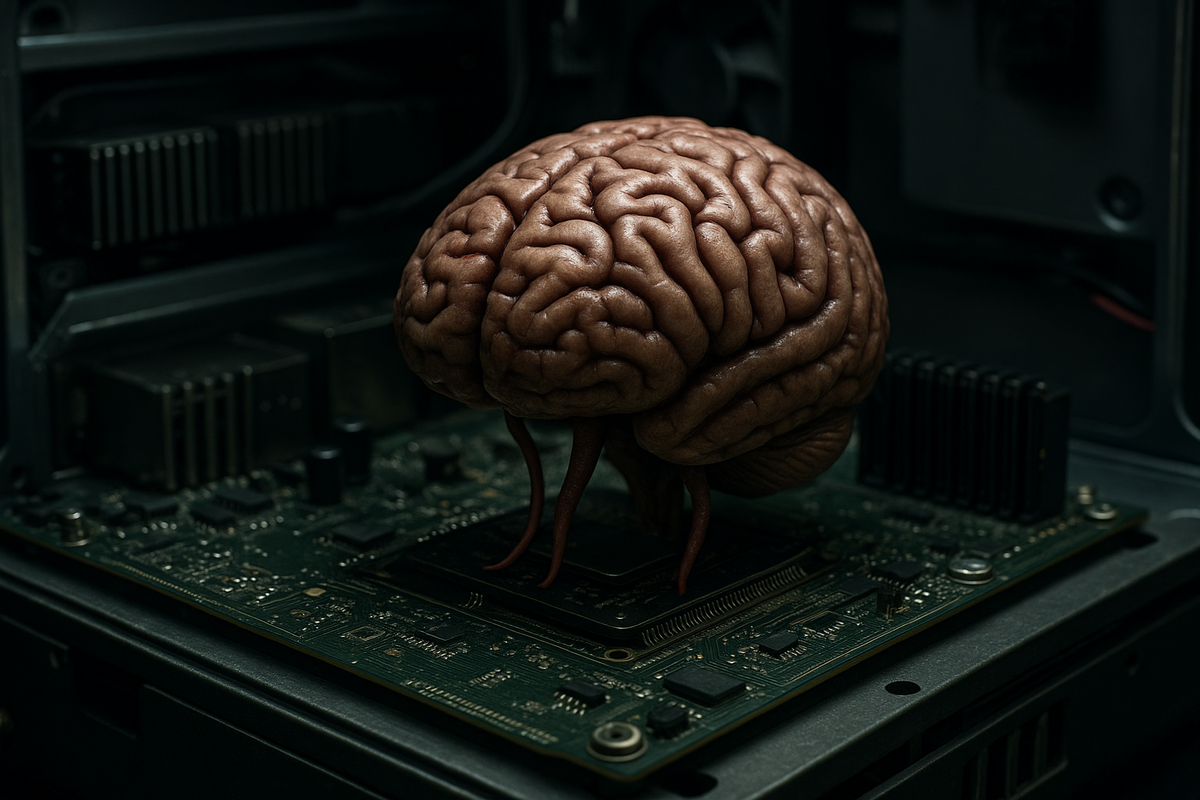Brain Cell Computer - the future is here
A living computer powered by 800,000 human neurons? Cortical Labs’ CL1 blurs the line between biology and machine.

Cortical Labs, Melbourne, Australia
No, it's not a hoax—it's real. Australian startup Cortical Labs has developed the CL1, the world's first commercially available biological computer powered by approximately 800,000 lab-grown human neurons. This innovative system merges living brain cells with silicon hardware to process information in real time, marking a significant advancement in computing technology.(perplexity.ai, mezha.media)
What Is the CL1?
The CL1 is a hybrid biocomputer that integrates human neurons—cultivated from adult skin or blood cells—onto a silicon chip equipped with a high-density microelectrode array. These neurons are sustained within a closed-loop life-support system that maintains optimal conditions for up to six months. The neurons interact with digital inputs and outputs, enabling real-time data processing and adaptive learning behaviors. (criticalplayground.org, spectrum.ieee.org)
How Does It Work?
The CL1 operates using Cortical Labs' proprietary biological operating system, biOS, which facilitates communication between the living neurons and digital interfaces. Researchers can deploy code directly to the neurons, allowing them to respond to stimuli and adapt their behavior over time. This setup enables the study of neural processing and learning in a controlled environment. (criticalplayground.org, techradar.com, corticallabs.com)
Applications and Implications
The CL1 is designed primarily for neuroscience and biotechnology research, offering a platform to study brain function, disease mechanisms, and drug responses. Its ability to model human neural activity provides a more ethically sound and potentially more accurate alternative to animal testing. Additionally, the system's low energy consumption and adaptability make it a promising tool for developing energy-efficient AI systems. (mezha.media, corticallabs.com, perplexity.ai)
Ethical Considerations
While the CL1 represents a significant technological breakthrough, it also raises ethical questions regarding the use of human neurons in computing. Cortical Labs emphasizes that the neurons used are not capable of consciousness or sensation, and all research complies with existing ethical guidelines for stem cell use. (criticalplayground.org)
In summary, the CL1 by Cortical Labs is a pioneering step in the field of biological computing, offering new avenues for research and potential applications in medicine and artificial intelligence.(biopharmatrend.com)



